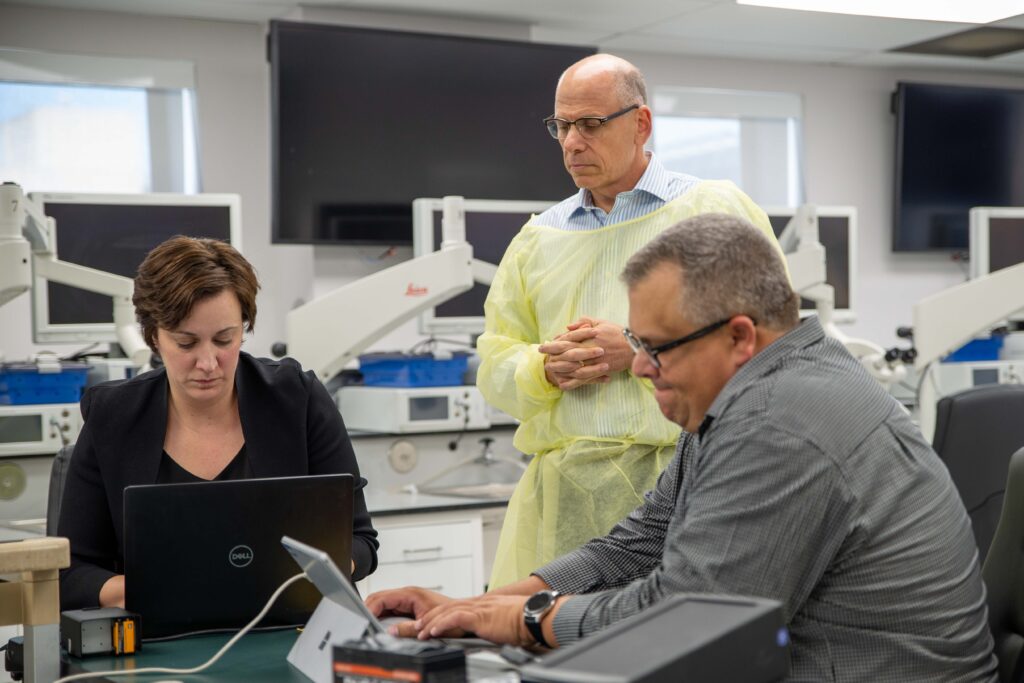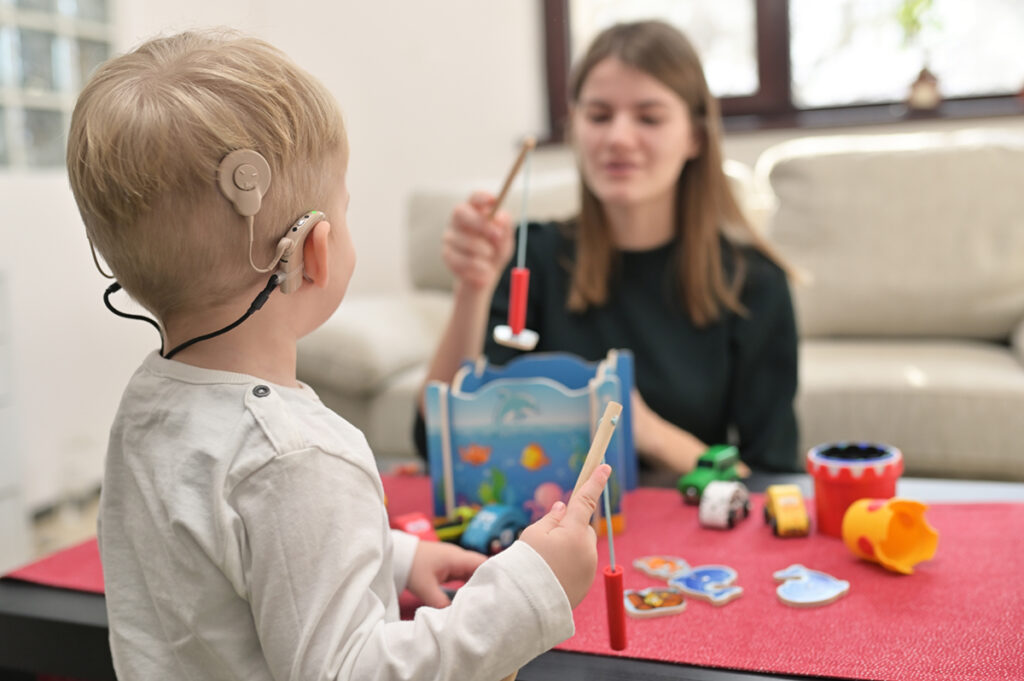The Department of Otolaryngology at Washington University in St. Louis plans to start recruiting patients this month for three important clinical trials.
Clinical Utility of Residual Hearing in the Cochlear Implant Ear

Principal Investigators: Amanda Ortmann, PhD, and Oliver Adunka, MD
Project summary and aims: It is estimated that only five percent of qualified adult candidates undergo cochlear implant surgery. One major barrier for these patients is the typical loss of residual hearing caused by the implant surgery. Hence, many candidates are faced with the decision to relinquish their remaining acoustic hearing in exchange for electric hearing via the cochlear implant. However, recent developments in hearing monitoring systems (electrocochleography) during implant surgery have shown promise for providing the surgeon with live feedback on how the implant insertion process is proceeding. This allows the surgeon to make intraoperative adjustments during implantation in order to minimize the trauma caused by the insertion of the electrode and ultimately preserve residual hearing.
The study seeks to investigate: 1) the advantage to hearing preservation of using a hearing monitoring system to guide implant surgery; and 2) the quality-of-life benefits that combined hearing aid/cochlear implant (CI) hearing provides participants compared to non-hearing preservation CI.
The study will enroll 138 adults over the course of two years with follow-up data collection continuing until all participants are two years postimplantation.
Study sites: University of Iowa, Mayo Clinic, Washington University in St. Louis, University of North Carolina at Chapel Hill, Ohio State University, Vanderbilt University, and Medical College of Wisconsin
Clinicaltrials.gov identifier: NCT04707885
Cochlear Implantation in Children with Asymmetric Hearing Loss or Single-Sided Deafness Clinical Trial

Principal Investigator: Jill Firszt, PhD
Project summary and aims: This multicenter, prospective, two-phase clinical trial will evaluate the efficacy and safety of cochlear implantation in children with asymmetric hearing loss or single-sided deafness. A hearing aid phase occurs over a minimum of four months prior to obtaining a cochlear implant (CI). A CI phase occurs over the 15-month period after initial activation of the implant. The groups will be tested for change in performance pre- to post-implant. Investigators will also collect longitudinal data over 12 months from age-matched normal hearing participants to provide information about expected outcomes due to development alone.
Post-implant performance with a cochlear implant alone is expected to outperform pre-implant performance with a hearing aid. Multiple test sessions will evaluate speech understanding in quiet and noise, and sound localization. Quality of life assessments related to communication, fatigue, social/emotional consequences, and perceived benefit will be administered to the participant and parent. The knowledge gained is integral to the development of standardized treatment for this underserved population.
Study sites: University of Southern California, Minneapolis (Fairview Health Services), Washington University in St. Louis, Oklahoma City (Hearts for Hearing), Children’s Hospital of Philadelphia
Clinicaltrials.gov identifier: NCT04793412
Noise-Induced Hearing Loss – Acute Exposure Treatment (PINIHL-AET)

Principal Investigator: Craig A. Buchman, MD
Project summary and aims: This study is a randomized, double-blinded placebo-control trial designed to examine the efficacy of a pharmacologic intervention to reduce noise-induced hearing loss caused by prolonged bone drilling during neurosurgery. The study drug, Zonisamide, is an anticonvulsant that blocks one type of calcium channel in auditory neurons. Study participants will receive Zonisamide or a placebo, before or after surgery, then tested for hearing loss.
The study will examine the proportion of subjects demonstrating hearing loss in the Zonisamide group compared to the placebo group. Hearing loss is defined as an increase in hearing threshold that is ≥10 dB at any measured frequency compared to pre-study hearing thresholds. If effective, patients receiving the study drug will exhibit less hearing loss than patients receiving the placebo.
Study sites: Washington University School of Medicine, University of Akron
Clinicaltrials.gov identifier: NCT04768569

